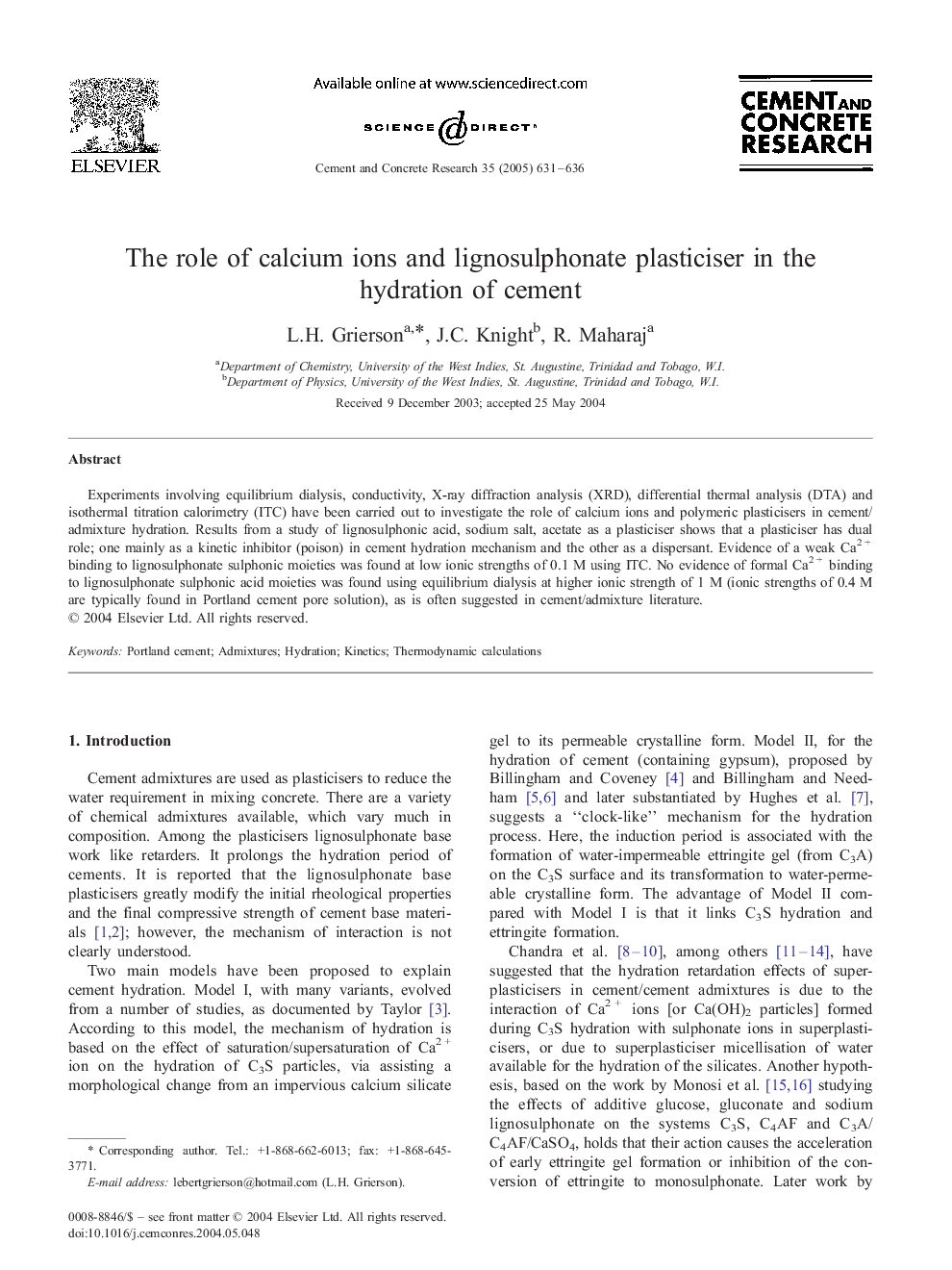| Article ID | Journal | Published Year | Pages | File Type |
|---|---|---|---|---|
| 10622382 | Cement and Concrete Research | 2005 | 6 Pages |
Abstract
Experiments involving equilibrium dialysis, conductivity, X-ray diffraction analysis (XRD), differential thermal analysis (DTA) and isothermal titration calorimetry (ITC) have been carried out to investigate the role of calcium ions and polymeric plasticisers in cement/admixture hydration. Results from a study of lignosulphonic acid, sodium salt, acetate as a plasticiser shows that a plasticiser has dual role; one mainly as a kinetic inhibitor (poison) in cement hydration mechanism and the other as a dispersant. Evidence of a weak Ca2+ binding to lignosulphonate sulphonic moieties was found at low ionic strengths of 0.1 M using ITC. No evidence of formal Ca2+ binding to lignosulphonate sulphonic acid moieties was found using equilibrium dialysis at higher ionic strength of 1 M (ionic strengths of 0.4 M are typically found in Portland cement pore solution), as is often suggested in cement/admixture literature.
Related Topics
Physical Sciences and Engineering
Engineering
Industrial and Manufacturing Engineering
Authors
L.H. Grierson, J.C. Knight, R. Maharaj,
